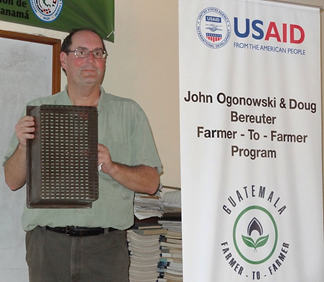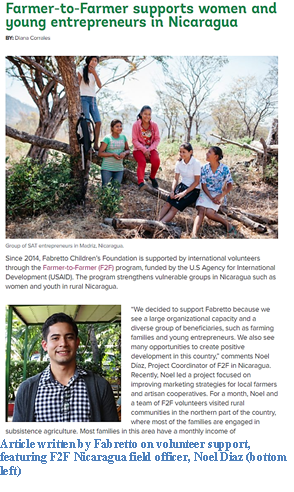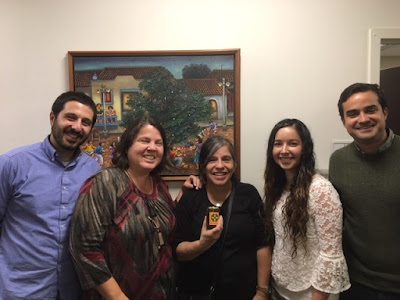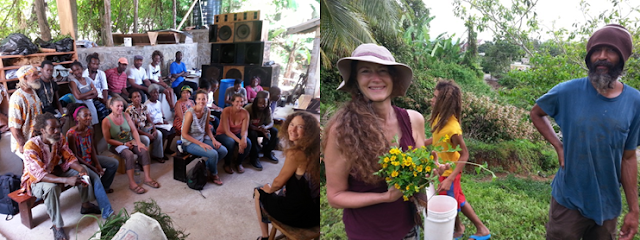Supporting Anti-Child Labor Projects in Ecuador and Panama
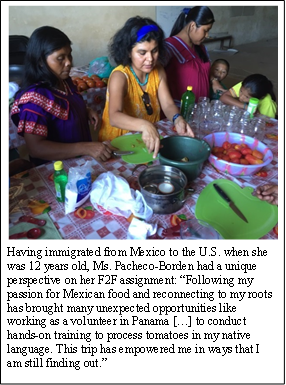
EducaFuturo is a program currently being implemented by Partners of the Americas in Ecuador and Panama. Funded by the U.S. Department of Labor (USDOL), EducaFuturo seeks to combat child labor in both countries through educational programs, vocational training, and livelihood services. F2F has partnered with EducaFuturo on numerous occasions over the past 5 years, sending 7 volunteers to support their efforts in improving the educational outcomes of youth involved in child labor, while also increasing the income opportunities of households to reduce reliance on child labor. Volunteers have provided training on a range of topics, including sustainable production practices, processing, business management, and marketing. In January 2016, F2F volunteer Carmen Pacheco-Borden traveled to Panama to work with native Ngabe-Bugle women’s groups in the tomato farming communities of Hato Chami and Boca de Monte to make value-added products from their harvests and consequently increase their hous...
